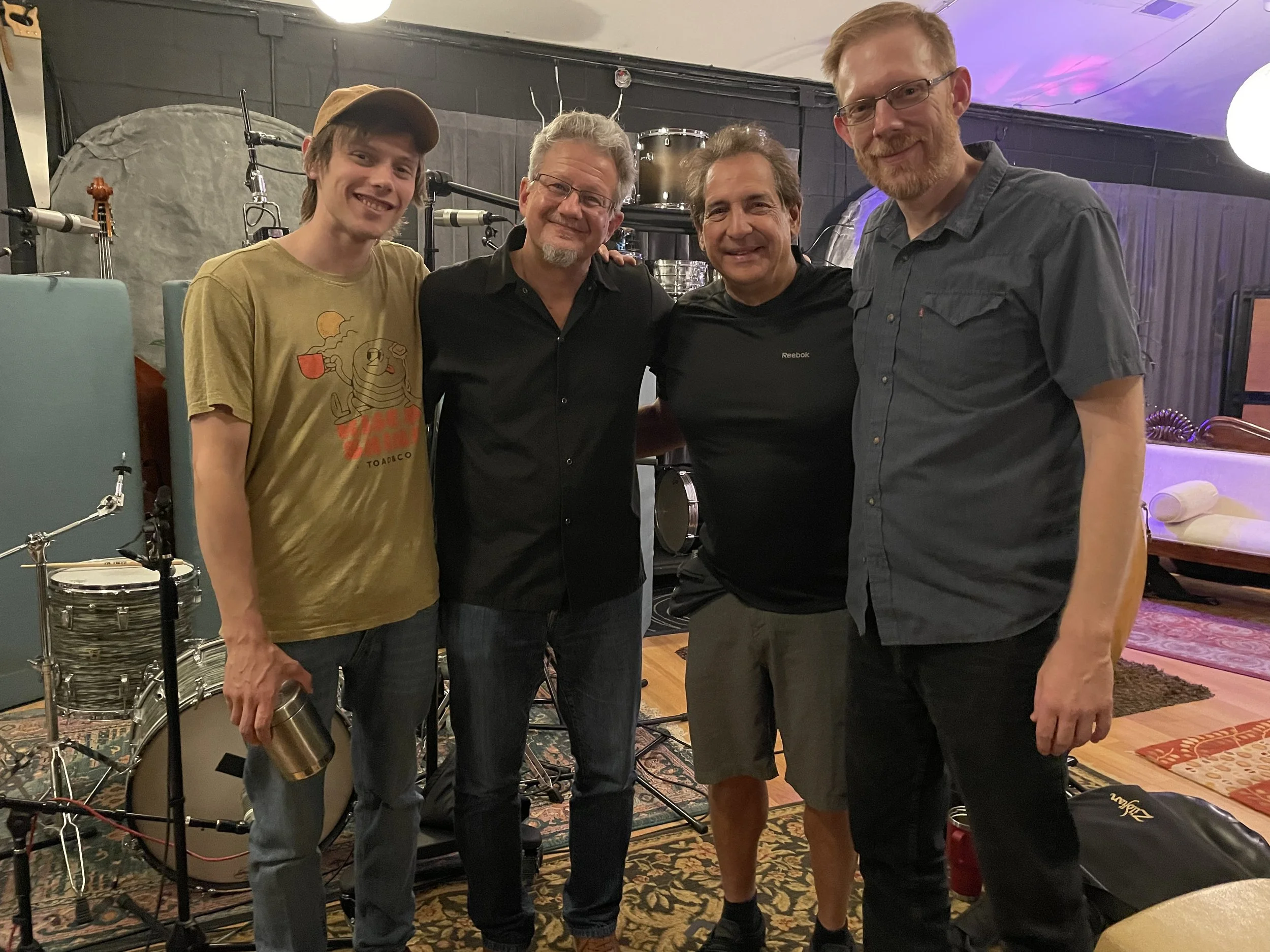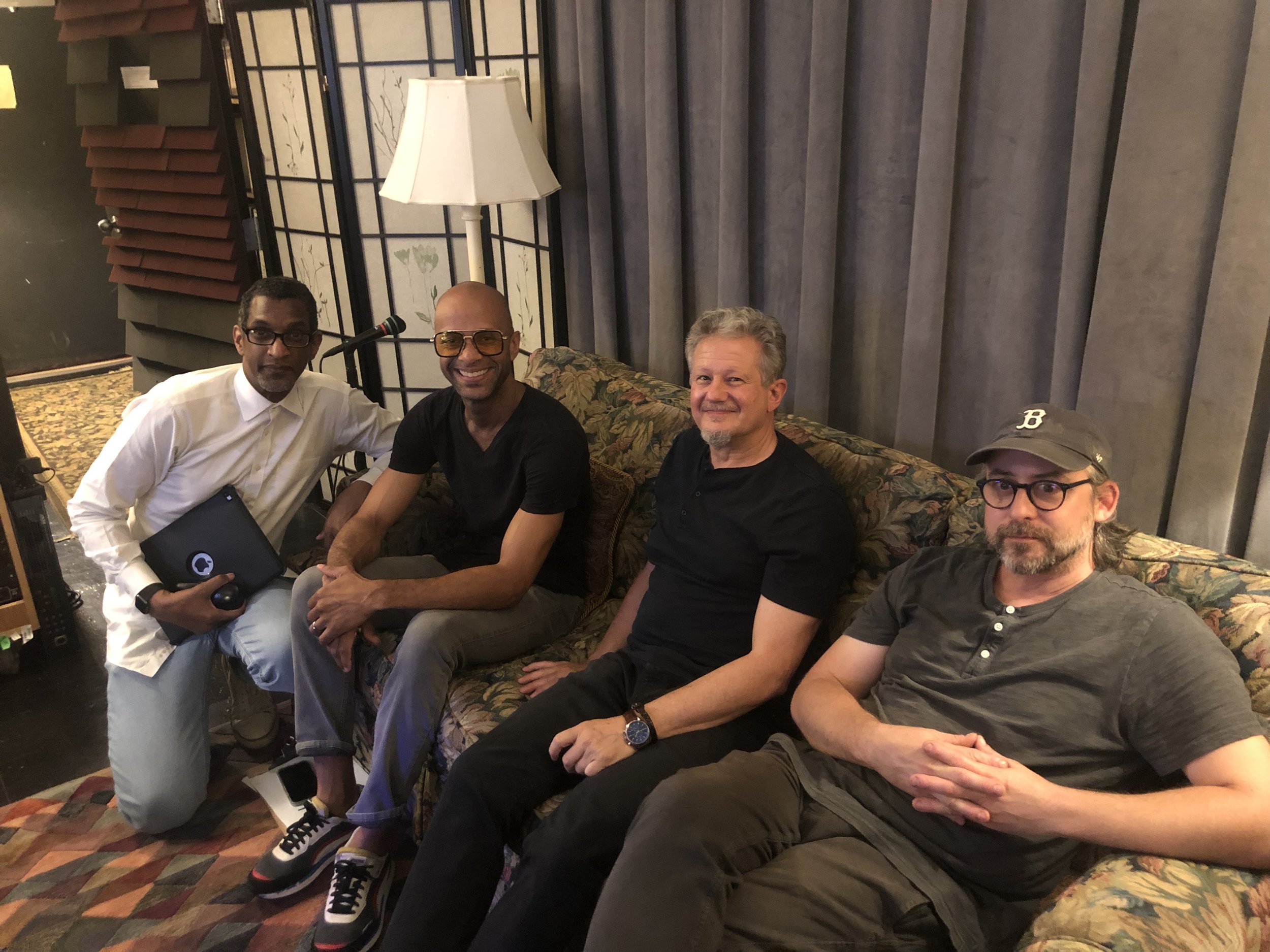Growth
Artist: Don Aliquo
Release Date: February 17, 2023
Catalog Number: EUR0441
TRACKLIST & PERSONNEL:
01) Salt and Light * (6:05)
02) Woman Clothed in the Sun * (4:43)
03) Lower Broadway Rundown * (7:25)
04) Growth ^ (7:21)
05) Pedal Taverns * (7:07)
06) For the Vulnerable ^ (7:05)
07) Naked Statues ^ (7:16)
08) Blues for Duffy and Doug ^ (5:57)
Personnel:
Don Aliquo - tenor saxophone, bass clarinet *^
Rod McGaha - trumpet *
Jonathan Wires - bass *
Marcus Finnie - drum set *
Steve Kovalcheck - guitar ^
Jacob Jezioro - upright bass ^
Danny Gottlieb - drum set ^
RECORDING INFO:
Recorded July 26 and July 28, 2022 @ The Studio Nashville, Nashville Tennessee
Brook Sutton - engineer and mixing engineer
John Hill - mastering engineer
All tunes composed by Don Aliquo (Alaco Music / BMI)
Don Aliquo exclusively plays Vandoren products and Selmer saxophones
ALBUM NOTES:
“Growth” is a work the reflects the city of Nashville’s rise and the expansion of the jazz scene of the past two decades since my arrival. It also documents my personal and musical growth and reflects my time spent living and performing in the Nashville area. I also wanted to write and perform some pieces that have a more open harmonic & rhythmic context that would stretch me as an improviser.
“Growth” refers to:
My personal and musical growth since my arrival over 20 years ago.
The growth of Nashville as a major city.
The expansion of the Nashville jazz scene.
The tunes:
Salt and Light are images used by Jesus in the sermon on the mount and conveys a desire to make the world a better place by showing unconditional love through good work.
Woman Clothed in the Sun is about someone who is special in my life that is the embodiment of the concept of Salt and Light.
Lower Broadway Rundown depicts the “hustle” that is the tourist destination know as Lower Broadway and references the great Sonny Rollins’ work: “East Broadway Rundown”.
Growth already explained!
Pedal Taverns portrays the general absurdity of the burgeoning tourist business downtown.
For the Vulnerable voices the many problems that face all major cities today and articulates the increase in homelessness and suffering as the gap widens between those who have and those who don’t.
Naked Statues expresses the division between those who view the statue “Musica” (at the roundabout near Division Street and 16th Avenue North) as art and those whose more fundamentalist views see them as obscenity. More broadly, it is also a statement about the multitude of issues that seemingly divide all of us.
Blues For Duffy and Doug is a tribute to two great musicians the Nashville music scene lost during the madness of the past few years: drummer Duffy Jackson and saxophonist Doug Moffet. Both musicians cast a long shadow on the scene and are sorely missed.
D O N A L I Q U O
Biography
Growth is hardly a new theme for reed player Don Aliquo. Mentored from childhood by his father, the still-active 93-year-old saxophonist Don Aliquo Sr., he has grown steadily as an artist and educator in his own right and his body of work shows it.
Don was born in Pittsburgh on May 10, 1960. His father, a proud Italian, hooked his son on jazz at an early age, including John Coltrane’s Giant Steps (“Coltrane was my main inspiration”) and Sonny Rollins classics including “Strode Rode” and “Pent-Up House.” When Don Jr. began listening to pop-inclined crossover saxophonists including Ronnie Laws, Grover Washington Jr., and Tom Scott during high school, his father countered by playing more Trane, proclaiming, “That’s the real deal!”
Don started out on clarinet and wanted to keep that as his main instrument as he got older. “I didn’t want to play sax,” he says. “But my father said I wouldn’t be able to play in ensembles and have a career in music if I didn’t switch. So I did.”
Aliquo learned quickly. By the time he entered junior high school, he could read music so well that his father sometimes sent him on gigs as his sub. By his senior year in high school, he was gigging several times a times a week with local Pittsburgh musicians including his lifelong friend and future Wynton Marsalis bandmate and Lincoln Center alumni drummer Jeff Watts.
Hungry for bandstand experience, Aliquo would hang around jazz clubs in one part of town. “I would learn a song like ‘All the Things You Are’ in one of them, walk up the street, and see if I could play it at another club,” he says. “If I got lucky, I might be able to play the same tune in a few places. I caught the tail end of a vibrant club scene in Pittsburgh.”
As a member of Horace Silver drummer Roger Humphries’ band, Aliquo got to play with touring artists who were passing through town including Eddie Harris, George Benson, and Stanley Turrentine, a Pittsburgh native who embodied its strong blues influence. “Although I didn’t know Stanley well, he was always offering me words of encouragement,” he says. “He had such a great style; he could say so much with just the conviction of his sound alone.”
In 1978, Aliquo enrolled at Duquesne University in Pittsburgh, where his teachers included saxophonist Eric Kloss, a “fearless” player who taught improvisation using modes - valuable lessons for a musician as draws to inside/out, high-energy players as Aliquo. Aliquo also studied and played classical music at Duquesne. “I remember asking John Wilson at Duquesne whether it was more important to get educated as a jazz musician on the street or at the university,” recalls Aliquo, referring to the famed Jazz Studies director there. “‘Seems like you’re doing both,’ he said to me. And so I was.”
Eventually, along with Jeff Watts, Aliquo moved east to attend the Berklee College of Music in Boston, where the two were roommates. En route to acquiring a Master’s Degree in performance, he played in the International Dues Band, directed by Phil Wilson, and studied with George Garzone, Joe Viola, Ed Tomasi, and John LaPorta.
Aliquo also played lead alto with the Tommy Dorsey Band and baritone saxophone with the Buddy Rich Band.
After returning to Duquesne as an instructor, he formed the Don Aliquo Quartet and has subsequently recorded with jazz royalty such as vibraphonist Gary Burton and the legendary bassist, Rufus Reid.
Aliquo, who has performed with such greats as Greg Osby, Pete Christlieb, Scott Robinson, and Marvin Stamm in Nashville, he spent a nine-month teaching sabbatical in New York, attending jam sessions and hanging with friends including tenor saxophonist Ellery Eskelin. He has travelled to China twice with the MTSU Jazz Faculty, appearing as guest professor of musical performance at Wuhan Conservatory of Music. He also taught and performed in Medellin and Pereira, Colombia, as part of the Promising Artists of the 21st Century Jazz Camp. In 2021, Aliquo traveled to Valencia, Spain as a guest artist at the Conservatori Superior de Música “Joaquín Rodrigo.”
It’s all been part of a remarkable growth cycle for Aliquo, in personal as well as professional terms. “Nashville has come a long way in the past 20 years, and in many ways, I think I have as well.”




